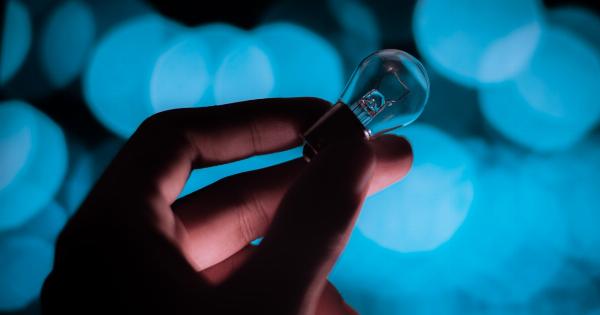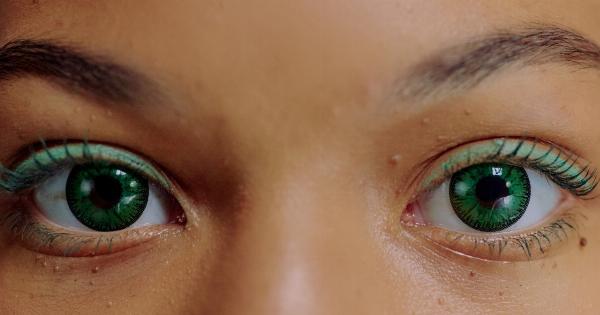Many contact lens wearers have been guilty of it at one time or another – falling asleep with their contacts still in.
Whether you doze off while reading a book, watching TV, or simply forget to take them out before going to bed, sleeping in contact lenses can have serious consequences.
1. Risk of Eye Infections
Wearing contact lenses for a long period of time can increase the risk of eye infections. This is because contact lenses restrict the flow of oxygen to your eyes, making them more vulnerable to bacterial growth.
When you sleep in your contact lenses, you are at an even higher risk of infections.
Bacteria and other microorganisms can accumulate on the lens surface, leading to an infection called microbial keratitis, which can be very painful and sometimes cause permanent damage to your vision.
2. Corneal Ulcers
In addition to infections, sleeping in your lenses can cause corneal ulcers. These are open sores that form on the cornea, the clear front covering of your eye. The ulcers can be caused by bacteria, fungi or viruses.
Sleeping in contact lenses can cause tiny scratches on the surface of the cornea, making it easier for bacteria to penetrate and cause ulcers. Corneal ulcers can be extremely painful and can cause permanent vision damage if not treated promptly.
3. Dry Eyes
Wearing contact lenses can cause dry eyes, which are characterized by a burning or itching sensation, redness, and discomfort.
Sleeping in contact lenses can exacerbate dry eye symptoms, as they can prevent your eyes from getting enough oxygen and moisture that they need. Dry eyes can be a chronic condition that lead to a variety of complications if left untreated, such as eye infections and corneal damage.
4. Abrasions and Discomfort
When you sleep in your lenses, you increase the risk of developing corneal abrasions – tiny scratches on the cornea. This is because the contact lenses can rub against the surface of your eyes as you turn over or change positions in your sleep.
Corneal abrasions are very painful and can cause a foreign body sensation in your eye. You may also experience discomfort and sensitivity to light.
5. Contact Lens Deposits
Contact lens deposits are another risk associated with sleeping in contact lenses. Deposits form when proteins, lipids and other substances in your tears build up on your contact lenses over time.
This can cause your lenses to become cloudy or blurred, and reduce their oxygen permeability. Deposits can also increase the risk of infections and can affect the fit of your lenses, leading to discomfort and irritation.
6. Increased Risk of Eye Injuries
Sleeping in contact lenses can increase the risk of eye injuries. If you rub your eyes in your sleep, you risk scratching your cornea or dislodging your contact lenses, which can cause them to get stuck in your eye.
This can be extremely painful and may require medical intervention to remove the lens safely. In severe cases, it can cause permanent eye damage or vision loss.
7. Decreased Contact Lens Lifespan
Lastly, sleeping in your contact lenses can decrease their lifespan. Contact lenses are designed to be worn for a specific period of time, after which they should be replaced.
By sleeping in them, you are exposing them to more germs and bacteria, which can cause them to degrade more quickly. This means you may have to replace your lenses more frequently, increasing the overall cost of wearing contact lenses.
Conclusion
Sleeping in your contact lenses can have serious consequences for your eye health. It’s important to make sure you follow proper contact lens care guidelines, including removing them before going to bed.
If you do fall asleep with them in, make sure to remove them as soon as possible to reduce your risk of infections and other complications.































